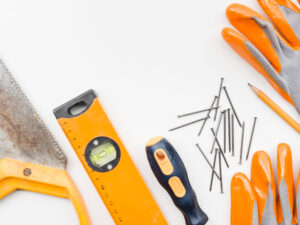Understanding Urinary Incontinence in Women: Key Symptoms and Causes
Millions of women throughout the world suffer with urinary incontinence, yet many are still reluctant to talk about it in public. Despite the fact that incontinence is common, many women suffer from it in quiet because they are embarrassed or don’t know enough about it. The purpose of this blog is to educate readers on female urine incontinence, including its signs, causes, and when to seek professional treatment. Relief is achievable because of the cutting-edge therapies offered at some of the best urology hospitals in Delhi.
What is Urinary Incontinence?
The involuntary release of urine which is a sign of a loss of bladder control is known as urinary incontinence. It can be anything from a sudden or uncontrollable urge to urinate to sporadic leaks when laughing or sneezing. While this condition is more common in older women it can affect individuals of all ages due to various underlying causes.
Key Symptoms of Urinary Incontinence:
Effective management and treatment of the illness depend on early symptom identification. The following are some of the typical indicators of incontinence in the urine:
- Leakage during physical activities such as coughing, sneezing or exercising.
- Frequent urination that disrupts daily life.
- Sudden strong urges to urinate often without sufficient time to reach a restroom.
- Bedwetting or leakage during sleep.
- Dribbling of urine after urination.
If you or someone you know is experiencing these symptoms then consulting the best urologist in Delhi can help identify the cause and recommend suitable treatments.
Types of Urinary Incontinence in Women:
Understanding the type of incontinence is essential for accurate diagnosis and treatment.
1. Stress Incontinence:
- This condition happens when lifting or laughing causes pee to spill.
- Frequently arises from injuries sustained during delivery or weak pelvic muscles.
2. Urge Incontinence:
- Characterized by an abrupt or strong need to urinate, which frequently results in mishaps
- Linked to an overactive bladder or neurological conditions.
3. Overflow Incontinence:
- Happens when the bladder doesn’t empty completely, causing frequent dribbling.
- Common in women with nerve damage or obstructions in the urinary tract.
4. Mixed Incontinence:
- A combination of stress and urge incontinence symptoms.
- Requires a tailored treatment approach.
Common Causes of Urinary Incontinence in Women:
Urinary incontinence can be caused by a variety of circumstances, including medical disorders and lifestyle choices. Among the most frequent reasons are:
- Pregnancy and Childbirth:
- The weight of the baby and delivery strain can weaken pelvic floor muscles.
- Hormonal Changes During Menopause:
- Reduced estrogen levels can affect bladder control.
- Urinary Tract Infections (UTIs):
- Temporary incontinence may occur during infections due to bladder irritation.
- Chronic Conditions:
- Diseases like diabetes or neurological disorders can impact bladder function.
- Obesity:
- Excess weight puts additional pressure on the bladder that may lead to leaks.
- Certain Medications:
- Diuretics or sedatives may interfere with bladder control.
Consulting a specialist at the best urology hospital in Delhi can help you to pinpoint the exact cause and recommend effective solutions.
When to See a Doctor?
While occasional leaks may seem manageable and persistent symptoms should never be ignored. Seek medical advice if:
- Symptoms affect your daily routine or confidence.
- You experience pain, blood in the urine or recurrent UTIs.
- Lifestyle changes fail to improve the condition.
The best urologist in Delhi can perform diagnostic tests such as urodynamic studies or bladder scans to assess the severity and develop a personalized treatment plan.
Available Treatments for Urinary Incontinence:
Modern medicine offers several effective treatments to manage urinary incontinence. These include:
1. Lifestyle Modifications:
- Maintaining a healthy weight and avoiding bladder irritants like caffeine.
- Scheduling the bathroom breaks to train the bladder.
2. Pelvic Floor Exercises (Kegels):
- Strengthening the pelvic muscles can reduce leaks over time.
3. Medications:
- Drugs that calm an overactive bladder or increase bladder capacity.
4. Minimally Invasive Procedures:
- Injections of bulking agents to support the urethra.
5. Surgical Interventions:
- Sling procedures or bladder neck suspension for severe cases.
At a trusted facility like the best urology hospital in Delhi these treatments are delivered with precision and care.
The Connection Between the Urinary Incontinence and PCOD/PCOS:
Conditions like PCOD and PCOS – Symptoms, Causes, Differences & Treatment can also indirectly contribute to urinary incontinence. Hormonal imbalances and weight gain is common in PCOD/PCOS that may increase pressure on the bladder and lead to leaks. If you suspect such conditions then addressing them alongside urinary incontinence is vital for overall health.
Why Choose a Specialized Urology Hospital?
Managing urinary incontinence requires expertise or advanced diagnostic tools and compassionate care. A dedicated urology hospital offers:
- Access to experienced specialists like the best urologist in Delhi.
- State-of-the-art equipment for accurate diagnosis.
- Holistic treatment options, including counseling and follow-up care.
Living with Confidence Again:
Urinary incontinence is a manageable condition and seeking timely medical care can significantly improve quality of life. Women no longer need to let this issue dictate their daily activities, social interactions or emotional well-being. By addressing the condition with professional guidance women can reduce the physical discomfort and emotional stress it causes. With access to expert care and advanced treatments at the best urology hospital in Delhi women can take proactive steps to regain control and restore their confidence and enjoy a fulfilling and active lifestyle without unnecessary interruptions.
Conclusion!
Understanding urinary incontinence in women is the first step toward overcoming this often overlooked as well as the impactful condition. From recognizing early symptoms to exploring a variety of treatment options and taking proactive steps can significantly improve both physical and emotional well-being. The stigma associated with urinary incontinence often prevents women from seeking timely care but understanding that it is a manageable medical issue can encourage more to take action.
With advancements in urological care as well as the expert guidance from the best urologist in Delhi, and access to cutting-edge treatments at leading hospitals relief and recovery are not just possible—they are achievable. Addressing this condition not only restores control but also enhances overall quality of life that allows women to live with confidence and dignity.
If you’re struggling with urinary incontinence then don’t wait to seek help. Visit PSRI Hospital to explore advanced urology care and take the first step towards a healthier and more confident life. Book your consultation today with us!














Post Comment